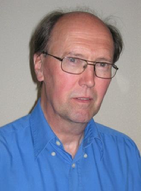Symposium on Stochastic Processes

Friday September 26th 2014, University of Twente on the occasion of the retirement of Erik van Doorn
Time: 26th September 2014, 10.30 till 18.00 hours (including reception)Location:
Location: University of Twente, Room 2K in the Carré-building (entrance via Hal B)
Click names for home pages, click titles for abstracts
10.00 – 10.30 | Welcome coffee and tea | |
10.30 – 10.45 | Opening | |
10.45 – 11.30 | ||
11.30 – 12.00 | Discrete-time Markov chains - the work of Pauline (Coolen-) Schrijner | |
12.00 – 13.15 | Lunch in the Waaier-building (‘bovenring’) | |
13.15 – 13.45 | ||
13.45 – 14.15 |
14.15 – 14.45 |
14.45 – 15.15 | Coffee and Tea | |
15.15 – 15.45 | ||
15.45 – 16.15 | ||
16.15 – 18.00 | Reception in the Waaier-building (‘bovenring’) |
Abstracts
Phil Pollett
The University of Queensland, Australia
Quasi-stationary distributions: then and now
10.45 – 11.30
Abstract:
Erik van Doorn is well known for his outstanding contributions to research in several areas of stochastic processes. A common theme has been the study of quasi stationarity of Markov processes, and how quickly this regime is reached. Having benefited over many years from several fruitful and enjoyable collaborations, I take great pleasure in presenting some of our most recent joint work in the area, beginning with some new historical perspectives.
Frank Coolen
University of Durham, United Kingdom
Discrete-time Markov chains - the work of Pauline (Coolen-)Schrijner
11.30 – 12.00
Abstract:
My wife Pauline completed her PhD thesis, entitled `Quasi-stationarity of discrete-time Markov chains', under supervision of Erik van Doorn in 1995. This was also the start of a fruitful collaboration with Erik which continued until Pauline's untimely death in 2008. It is my pleasure to provide a brief overview of this collaboration, and to highlight further contributions by Pauline, in particular on Markov chains with imprecise probabilities. I will also provide a brief overview of the further work by Pauline, including with her 4 PhD students and with me. I will end with a brief introduction to some ideas which Pauline had started to consider and for which she had some initial results, but which are still waiting to be developed further.
Guy Latouche
Free University of Brussels, Belgium
The deviation matrix, Poisson's equation, and QBDs
13.15 – 13.45
Abstract:
The deviation matrix is closely related to the solutions of Poisson's equation and plays an important, if largely unsung, role in the analysis of Markov chains. Suffices to recall its connections to the sensitivity analysis of the stationary distribution of a Markov chain, and to the Central Limit theorem for Markov chains. If the state space is finite, then the deviation matrix is the group inverse of I-P in discrete time, where P is the transition matrix; in continuous time, it is the group inverse of the generator. I shall focus on quasi-birth-and-death processes (QBDs) and I shall show how one may exploit the special transition structure of QBDs, and the physical interpretation of the deviation matrix, in order to obtain a computationally useful expression.
Bart van Arem
Technical University of Delft
Reducing randomness: the advent of self-driving cars
13.45 – 14.15
Abstract:
Worldwide, self-driving cars are believed to lead to a breakthrough in traffic flow efficiency and safety and driving comfort. However, there is a big gap between understanding the behaviour of an experimental self-driving and the ultimate implication of a large scale traffic systems based on manually and self-driven cars. The answer is in mathematical modelling. We will review current developments of self-driving cars, current modelling approaches and results and future challenges.
Rein Nobel
Free University of Amsterdam
The Downs-Thomson paradox revisited
14.15 – 14.45
Abstract:
A system of two parallel queues is considered. The first queue is a standard M/G/c model and the second queue is an M/G[N]/infty batch service queue with an unlimited number of servers. Each queue has its own arrival stream of dedicated customers, and there is a third arrival stream of general customers who upon arrival must decide which queue to join. In this presentation we will discuss the consequences for the overall mean sojourn times of the [general] customers of various selfish and social arrival policies. First the so-called user equilibria will be discussed, and we will show that the well-known Downs-Thomson paradox shows up when we increase the number of servers, ceteris paribus, i.e. keeping the mean service time constant in the M/G/c queue, the overall mean sojourn time of the customers increases with the number of servers. Similar paradoxes show up when in the multi-server queue the squared coefficient of variation of the service time is changed. Also the optimal state-dependent selfish policy is calculated for which the Downs-Thomson paradox shows up in a more mitigated form. Next we will discuss several heuristic state-dependent selfish policies for the general customers which are more in accordance with practice than the optimal selfish state-dependent policy. It will turn out that also for these heuristic policies the Downs-Thomson paradox is present.
Werner Scheinhardt
University of Twente
Random walks in dependent random environments
15.15 – 15.45
Abstract:
Although the theoretical behavior of one-dimensional random walks in random environments is well understood, the numerical evaluation of various characteristics of such processes has received relatively little attention. In this talk we develop new theory and methodology for the computation of the drift of the random walk for various dependent random environments, including k-dependent and moving average environments. (Joint work with Dirk Kroese)
Erik van Doorn
University of Twente
Title: to be announced
15.45 – 16.15
